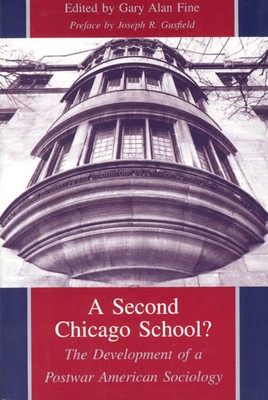
- We will send in 10–14 business days.
- Publisher: University of Chicago Press
- ISBN-10: 0226249395
- ISBN-13: 9780226249391
- Format: 15.5 x 23 x 2.4 cm, minkšti viršeliai
- Language: English
- SAVE -10% with code: EXTRA
A Second Chicago School? (e-book) (used book) | bookbook.eu
Reviews
Description
From 1945 to about 1960, the University of Chicago was home to a group of faculty and graduate students whose work has come to define what many call a second Chicago School of sociology.
Like its predecessor earlier in the century, the postwar department was again the center for qualitative social research--on everything from mapping the nuances of human behavior in small groups to seeking solutions to problems of race, crime, and poverty. Howard Becker, Joseph Gusfield, Herbert Blumer, David Riesman, Erving Goffman, and others created a large, enduring body of work. In this book, leading sociologists critically confront this legacy. The eight original chapters survey the issues that defined the department's agenda: the focus on deviance, race and ethnic relations, urban life, and collective behavior; the renewal of participant observation as a method and the refinement of symbolic interaction as a guiding theory; and the professional and institutional factors that shaped this generation, including the leadership of Louis Wirth and Everett C. Hughes; the role of women; and the competition for national influence Chicago sociology faced from survey research at Columbia and grand theory at Harvard. The contributors also discuss the internal conflicts that call into question the very idea of a unified school.EXTRA 10 % discount with code: EXTRA
The promotion ends in 23d.21:55:13
The discount code is valid when purchasing from 10 €. Discounts do not stack.
- Publisher: University of Chicago Press
- ISBN-10: 0226249395
- ISBN-13: 9780226249391
- Format: 15.5 x 23 x 2.4 cm, minkšti viršeliai
- Language: English English
From 1945 to about 1960, the University of Chicago was home to a group of faculty and graduate students whose work has come to define what many call a second Chicago School of sociology.
Like its predecessor earlier in the century, the postwar department was again the center for qualitative social research--on everything from mapping the nuances of human behavior in small groups to seeking solutions to problems of race, crime, and poverty. Howard Becker, Joseph Gusfield, Herbert Blumer, David Riesman, Erving Goffman, and others created a large, enduring body of work. In this book, leading sociologists critically confront this legacy. The eight original chapters survey the issues that defined the department's agenda: the focus on deviance, race and ethnic relations, urban life, and collective behavior; the renewal of participant observation as a method and the refinement of symbolic interaction as a guiding theory; and the professional and institutional factors that shaped this generation, including the leadership of Louis Wirth and Everett C. Hughes; the role of women; and the competition for national influence Chicago sociology faced from survey research at Columbia and grand theory at Harvard. The contributors also discuss the internal conflicts that call into question the very idea of a unified school.

Reviews